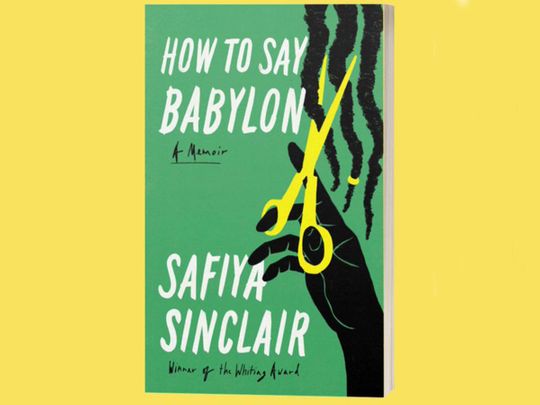
Set against the backdrop of the idyllic Montego Bay in Jamaica, where luxury resorts line pristine beaches, “How to Say Babylon” unveils the captivating tale of Safiya Sinclair’s remarkable struggle for liberation.
Born into a strict Rastafarian household ruled by her father’s unwavering patriarchal beliefs and oppressive control, Safiya embarks on a poignant journey to reclaim her voice as a woman and a poet.
Her father, a volatile reggae musician and fervent follower of a rigid Rastafari sect, waged a relentless battle against Babylon, the perceived corrupting influence of the Western world lurking just beyond their doorstep.
To safeguard the purity of their family’s women, he imposed a regime, forbidding short sleeves, short skirts, opinions, and even friendships beyond the confines of their home and school. In the isolated world where Rastas faced ostracism, her father’s authority was absolute.
Hope, intellect, and imagination
Amid these restrictions, Safiya’s mother, though loyal to her husband, offered solace through books and poetry, providing a window to the world outside.
As Safiya’s imagination soared beyond her confining reality, her quest for independence ignited fierce clashes with her increasingly radicalised father. The path to freedom demanded that Safiya leave home, but in doing so, she discovered the need to navigate a complex journey back.
Safiya Sinclair invites readers on an intimate exploration of Rastafari, a world often misunderstood by outsiders, while delivering a profoundly personal reckoning with family, history, and the enduring legacy of colonialism.
Her lyrical memoir, “How to Say Babylon,” resonates with emotional intensity, serving as a testament to the enduring forces of hope, intellect, and imagination that illuminate every page.
Throughout her childhood, Safiya’s father’s obsession with her purity, coupled with his fear of Babylon’s corrupting influence, drove him to impose stringent restrictions.
Passion for poetry and learning
Women in her family were compelled to eschew make-up and jewellery, silence their opinions, and shun friendships. It was Safiya’s mother, though silently enduring her husband’s beliefs, who provided her children with the gift of literature, igniting Safiya’s passion for poetry and learning.
As Safiya’s defiance against her father’s rules intensified, their clashes grew in magnitude. Fuelled by a growing sense of independence, Safiya harnessed her education as a potent tool for self-discovery. Her journey toward self-empowerment inevitably set her on a collision course with her father, leading to eruptions of rage.
“How to Say Babylon” is Safiya Sinclair’s profound reckoning with the culture that both nurtured and sought to suppress her. It delves into the themes of patriarchy, tradition, and the enduring legacy of colonialism in Jamaica.
With poetic prose that only a gifted poet can conjure, Safiya’s memoir is not only a universal narrative of a woman reclaiming her power but also an extraordinary glimpse into the enigmatic world of Rastafari, a culture known by name but seldom understood.
Ahmad Nazir is a UAE based freelance writer








